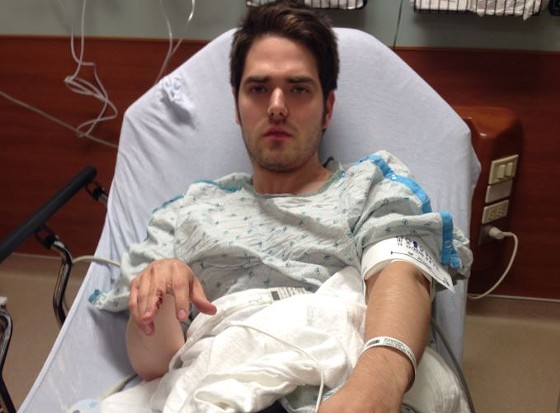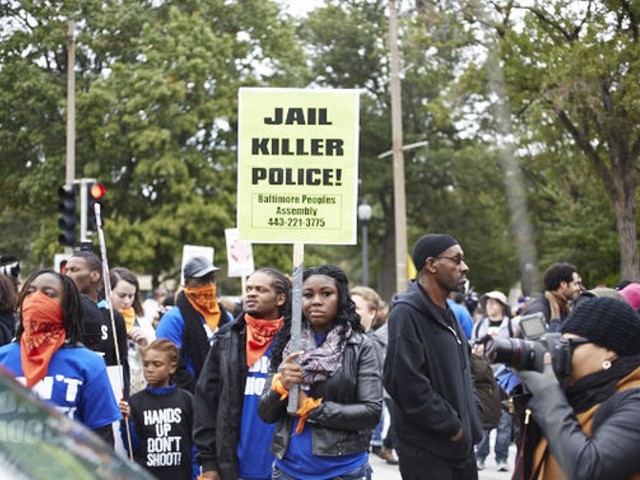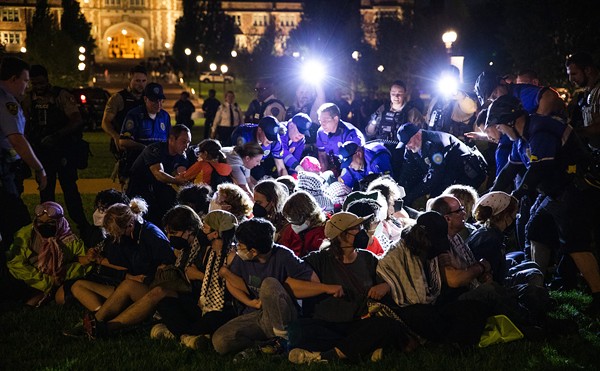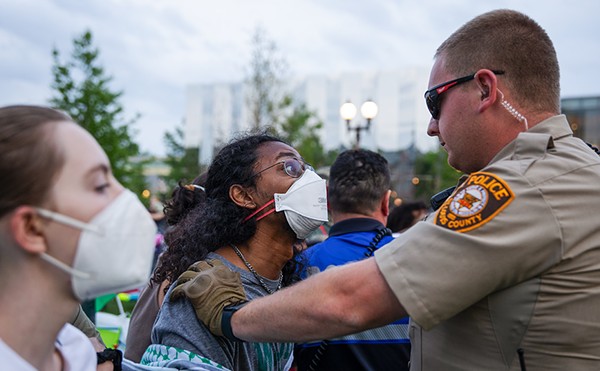
Chris Schaefer says he's still hurting.
"I'm still recovering, still been sleeping a lot. I've had a hard time breathing," says the 24-year-old University of Missouri-St. Louis student, his voice wheezing over the phone. Schaefer's face and bandaged, bloody hands made headlines earlier this month after he was allegedly beaten during a November 6 planning meeting for Ferguson activists held at the Greater St. Mark Missionary Church.
After getting out of the hospital about a week ago, Schaefer reached out to Daily RFT through his attorney, saying he wanted to set the record straight on the beating and on what he'd witnessed on the streets during his brief career as a livestreamer.
"The truth is that I was robbed in the church, assaulted inside the church and assaulted right outside the church," he says.
See also: Ferguson Business Owners Ask Protesters to Stay Peaceful After Grand Jury Decision
It all started when attendees at the protester meeting accused him of recording the private gathering. Schaefer maintains that he wasn't recording the meeting -- rather, he was merely texting his girlfriend.
"At the time I knew about fifteen people in the church, and some of those people stood up and they moved away from my pew, like they knew something was about to happen," he says.
About 40 minutes after the meeting started, Schaefer says one man he didn't recognize ran over to him and shouted that he was livestreaming. The outburst started the assault, Schaefer continues, and several assailants snatched his phone and charger before slamming him into the church's exit door. Once outside, he says, about five people began punching and kicking him in the face, arms, stomach, ribs and legs. After several other individuals from the meeting intervened to stop the assault, Schaefer managed to run to a nearby Walgreens, where he convinced a clerk to call 911. An ambulance took him to a hospital, and later another livestreamer returned his cellphone. He doesn't know what happened to his charger.
"It was shocking and traumatizing," he says of the ordeal.
The aftermath of the beating, however, brought little clarity to the incident. Patricia Bynes, a Democratic committeewoman in Ferguson and outspoken supporter of the protest movement, was present at the meeting and blamed the attack on members of the Lost Voices.
Schaefer says he doesn't know if the people who attacked him were members of Lost Voices, and the group has since denied involvement in the attack. Schaefer's St. Louis-based attorney, Thomas SanFillipo, says no litigation is planned at this time.
"I felt like I was out there, like I was part of the group, just showing what's happening, supporting freedom of speech and democracy," says Schaefer, who'd only been livestreaming since late October, barely two weeks before he was set upon in the church.
But there were signs that Schaefer wasn't trusted among the established protest community. While livestreaming during an October 30 march in Shaw, he was contacted by other individuals monitoring Ferguson live streams: They warned him that other activists were suspicious of him. But, other messages told Schaefer not to worry.
In retrospect, Schaefer wonders if those early rumors made him a target.
"It could have been related. Since a livestreamer talked about it that night and told other protesters I was a cop and that I'm lying, that very well could have planted the seeds of distrust which led to me getting beat up," he says. "I don't know."
Schaefer says he saw other clues hinting to a sometimes-volatile relationship between livestreamers and protesters. He claims to have observed situations where protesters ordered livestreamers to mute or shut down their feeds if a particular event -- such as people attempting to verbally antagonize or incite police officers -- made the protest movement look bad.
"A lot of the time you could walk around freely and film, but it seemed like there was a particular narrative that [protesters] are trying to tell, so if a livestreamer would film something that would be against narrative, they would want them to mute it or turn the phone off," he says.
Though Schaefer is still bed-ridden and in pain, he says he hasn't been discouraged from his original goal of creating an "unbiased" livestream of the Ferguson protest movement.
"I think both sides are better off with people who can just film it like is, and not to worry about being cast out by either side," he says. "People who watch the streams can see for themselves the bad and the good and decide for themselves, but once you have the narrative that has to be looked at, then you're losing some of the story. It loses some of the accountability."
"So," he adds, "I would hope to get back out there at some point."
Follow Danny Wicentowski on Twitter at @D_Towski. E-mail the author at [email protected]





